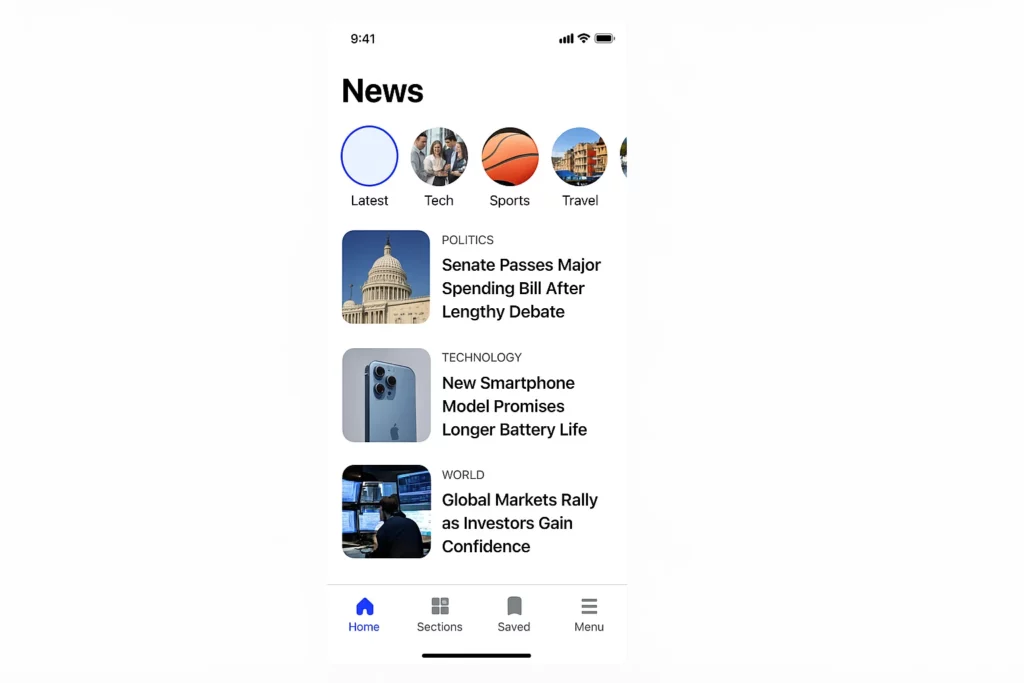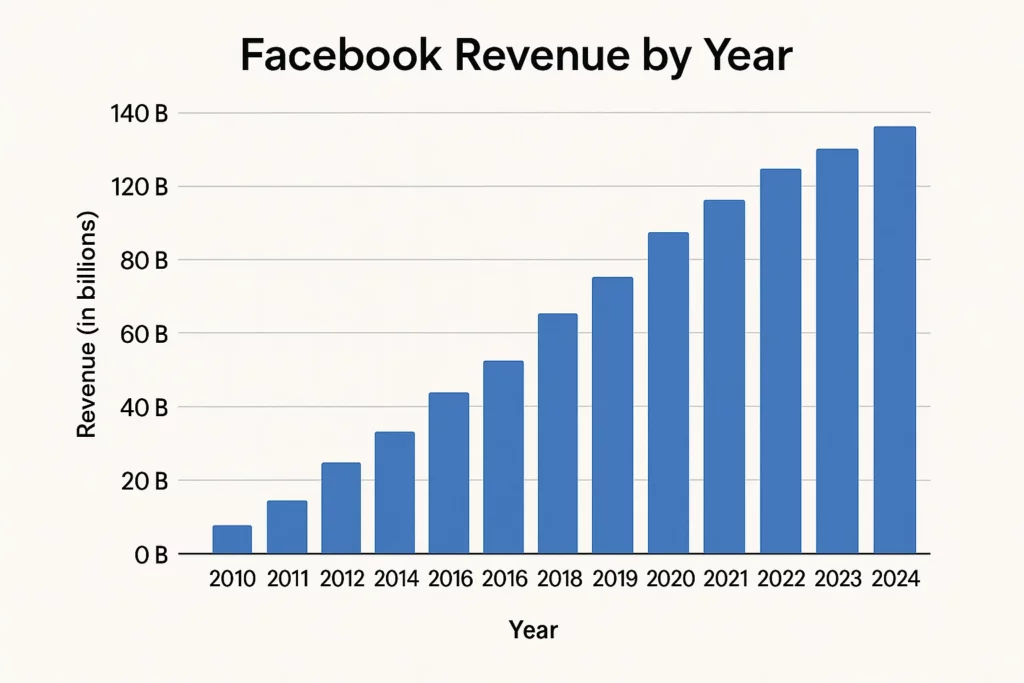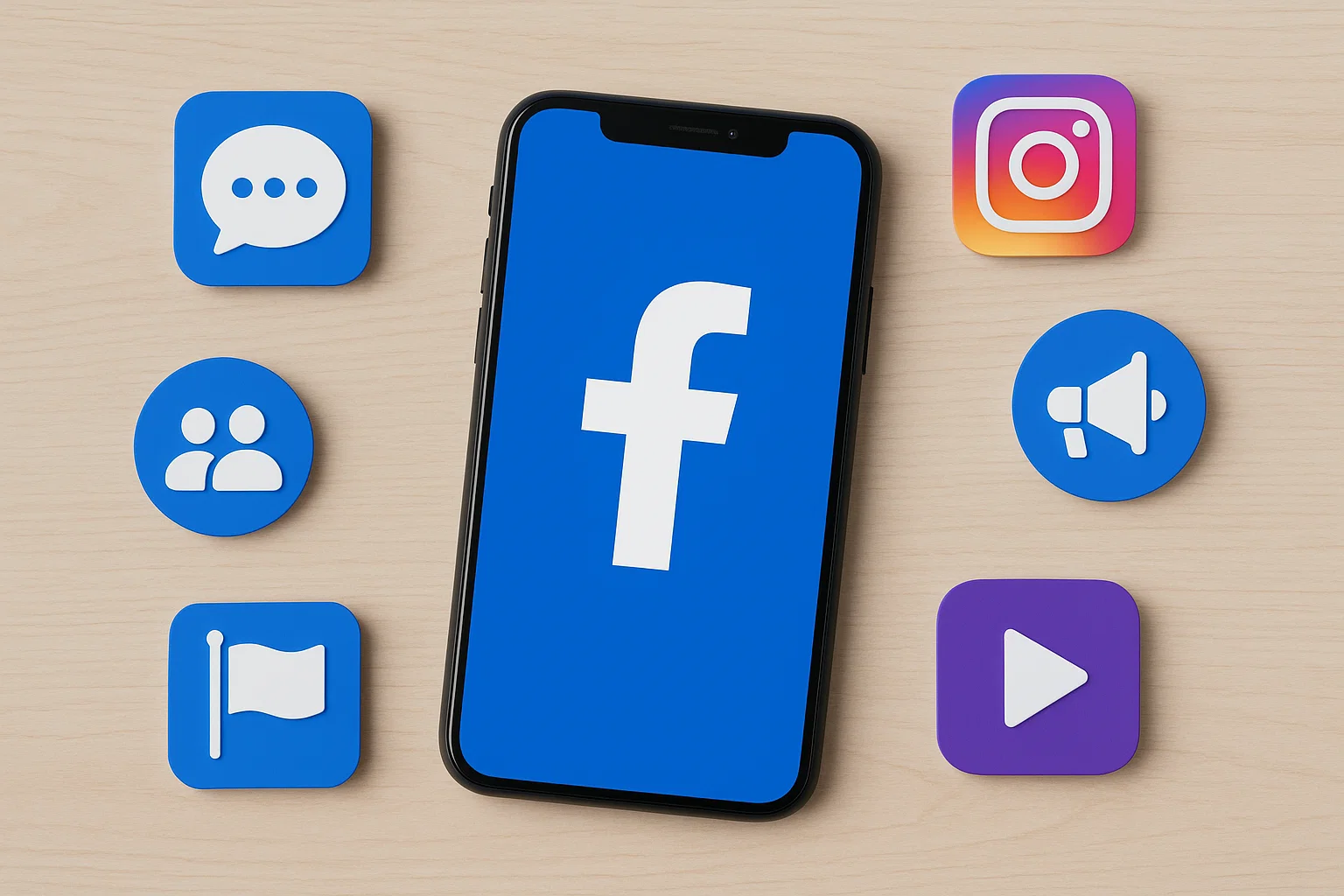Imagine you’re in your dorm, coding late at night, trying to build something just for your college buddies. Fast forward 20 years — that tiny side project becomes a global juggernaut with over 3 billion monthly users. That’s Facebook in a nutshell. Whether you love it, hate it, or occasionally forget you still have it installed, Facebook changed the game — and the way we connect.
But Facebook isn’t just a place to post vacation pics or stalk your ex (we’ve all been there). It’s a full-blown digital ecosystem — a hyper-connected social media app that’s part feed, part messaging tool, part business engine, and part entertainment center. From livestreaming weddings to buying shoes through Marketplace, Facebook’s become a Swiss Army knife for digital life.
And if you’re dreaming of launching a Facebook clone with social feeds, real-time chat, groups, and monetization options — that’s where Miracuves steps in. Let’s break down how the Facebook app works, why it dominates, and how you can replicate (or reinvent) it.
What Exactly is the Facebook App?
Facebook is a social networking app developed by Meta (formerly Facebook Inc.) that allows users to connect, share, and interact digitally. It blends features from messaging platforms, media-sharing apps like Instagram, discussion forums like Reddit, and even eCommerce platforms.
Key Functions:
- Creating user profiles
- Adding friends or following pages
- Posting text, images, videos, and livestreams
- Liking, commenting, and sharing content
- Creating or joining groups and events
- Messaging (via Messenger)
- Running or interacting with Facebook Pages
- Shopping via Facebook Marketplace
It’s available on smartphones (iOS/Android), tablets, and the web.

How Facebook App Works Behind the Scenes
1. Account Creation & Onboarding
Users sign up with email or phone, set up a profile with a photo and bio, and receive “friend suggestions” powered by smart algorithms.
Two-factor authentication and device verification make onboarding secure — and also smooth.
2. News Feed Algorithm
Facebook’s infamous feed isn’t random. It uses the EdgeRank algorithm (now evolved) which ranks posts based on:
- Engagement (likes, comments)
- Recency
- Relationship strength (how close you are to the person/page)
- Content type (videos often prioritized)
The goal? Keep users scrolling.

3. Stories & Reels
Inspired by Snapchat and TikTok, users can post short-lived content (Stories) or vertical short-form videos (Reels). These formats dominate mobile engagement.
Stories disappear in 24 hours. Reels can go viral.
Analyze the inner workings of Facebook and learn how its targeted marketing strategy revolutionized digital advertising.
Facebook’s Core Features (And Why They Work)
A. Social Feed
Think of it like an endless digital newspaper tailored just for you. The more you engage, the smarter it gets.
B. Messenger Integration
While Facebook and Messenger are now separate apps, they’re tightly integrated. You can:
- Chat one-on-one or in groups
- Send photos, audio, GIFs
- Make voice/video calls
- Use business bots
Messenger even powers customer support for brands and eCommerce.
C. Groups & Events
These are Facebook’s community-building tools. From local soccer teams to NFT collectors — groups bring people together, while events help organize and invite attendees.
D. Marketplace
This is Facebook’s Craigslist-meets-eBay feature. Buy and sell locally with simple listings and messaging.
People sell everything from couches to cars here — and it’s free to use.
Explore Facebook’s most powerful features and how they’ve evolved to connect billions of users worldwide.
How Facebook Makes Money
Facebook’s revenue model is slick and massive. In 2024, Meta generated over $135 billion in revenue — primarily from ads.
Main Revenue Streams:
- Facebook Ads: Businesses pay to appear in users’ feeds, stories, and Reels
- Boosted Posts: Individuals and brands promote content for reach
- Marketplace Ads: Ads appear even when users browse for used sneakers
- In-App Purchases: Game coins, stickers, and other virtual goodies

Facebook Clone App Development: What You’d Need
Thinking of building the next social sensation? Here’s what to prioritize:
1. User Profiles
- Custom avatars
- Bio, location, followers/friends
- Posts & tagged content
2. Smart Feed
- AI-powered suggestions
- Trending hashtags
- Post scheduler
3. Stories & Video Sharing
- 15–60 second video uploads
- Filters, stickers, captions
- Reel-style swipe navigation
4. Real-Time Chat
- WebSocket or Firebase integration
- Typing indicators, read receipts
- File sharing
5. Groups, Pages, Events
- Admin roles
- Member analytics
- Event RSVP and reminders
6. Monetization Features
- Ads manager
- Creator tips/donations
- Marketplace integration
Tech Stack Powering Facebook (And Your Clone)
Want to go full nerd mode? Here’s a peek at what powers Facebook — and what your clone should consider:
| Component | Facebook (Meta) Uses | Your Clone Can Use |
|---|---|---|
| Backend | Hack (PHP fork), GraphQL | Node.js, Laravel, Django |
| Frontend | React | React, Vue.js |
| Database | MySQL, Cassandra, RocksDB | PostgreSQL, MongoDB |
| Messaging | MQTT, WebSockets | Firebase, Socket.IO |
| AI/ML | PyTorch | TensorFlow, OpenAI APIs |
| Hosting | Meta Infra | AWS, Google Cloud, Azur |
Explore Facebook’s business model and learn what it takes to build a successful social networking app from the ground up.
Conclusion
Facebook didn’t just build a social app — it created a digital lifestyle. But that also means there’s room for the next wave of platforms that do things better, faster, or more focused.
Whether you’re targeting creators, gamers, pet lovers, or hyper-local communities — a Facebook-like app clone can be your launchpad to a massive, engaged audience.
At Miracuves, we help innovators launch high-performance app clones that are fast, scalable, and monetization-ready. Ready to turn your idea into reality? Let’s build together.
FAQs
Is Facebook just for social networking?
Not anymore. It’s now a full platform with eCommerce, entertainment, messaging, groups, and even dating.
What technologies power Facebook?
Facebook uses React, GraphQL, and custom infrastructure. But clone apps can use modern stacks like Node.js and Firebase.
Can I build my own Facebook-like app?
Absolutely! With the right team and tools (hint: Miracuves), you can launch a Facebook-inspired app tailored to your niche.
How does Facebook make money?
Mainly through advertising, boosted content, and Marketplace visibility. It’s an ad revenue powerhouse.
How do Facebook’s algorithms work?
They analyze your interactions (likes, comments, views) and prioritize content you’re most likely to engage with.
What’s the difference between Facebook and Instagram?
Instagram is visual-first, while Facebook blends text, video, groups, events, and Marketplace into one platform.








